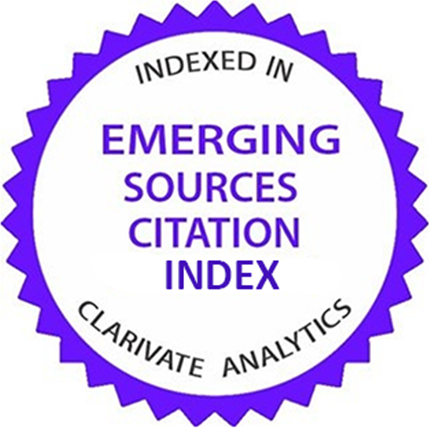The ideal applicant to emergency medicine residency programs in Saudi Arabia; Program directors’ view
Abstract
Objective: Emergency medicine (EM) is considered a competitive specialty worldwide with an acceptance rate of 57% in Canada but more competitive in Saudi Arabia with 18.7%. Factors that influenced the applicant’s acceptance include letters of recommendation, interview performance, research experience, and gender. This study aims to determine the factors playing a role in applicants matching to EM residency programs in Saudi Arabia from the view of program directors. Methods: A pilot study was done using a self-administered-questionnaire distributed to EM residency program directors (PDs) in Saudi Arabia in the period of 16-21 November 2021. The data were analyzed using SPSS, and all ethical considerations were ensured. Results: Twenty-seven PDs participated in the study, 19 (70.4%) were males, and most were former PDs (59.3%). The most crucial aspect in the applicant’s acceptance was the excellent impression in the interview (4.00 ± 1.00). The most crucial aspect of recommendation letters was a recommendation from a program director (29.6%), total duration of electives (40.7%) was superior; quality in EM research (29.6%) played a more critical role, and professionalism (29.6%) was the sought factor during the interview. There was no significant influence of the gender or the status of the PD and region of the program on the preference of the applicant’s gender. Conclusion: For those considering EM residency programs in Saudi Arabia, the chance of acceptance can be increased by getting a recommendation from a program director, increasing the duration of electives in EM, focusing on the research quality, and showing professionalism during the interview.
2. Ware J, Al Sultan M. The selection of graduates for residency training and the research that is needed. J Health Spec. 2015;3:189-90.
3. ERAS [Internet]. 2021. [Available from: https://www.aamc.org/system/files/2019-10/services-eras-preliminary-data-counts-residency-applicants-specialty-year-10172019.xlsx].
4. Cain J, Scott DR, Smith K. Use of social media by residency program directors for resident selection. Am J Health Syst Pharm. 2010;67(19):1635-9.
5. Shultz K, Mahabir R, Song J, Verheyden C. Evaluation of the current perspectives on letters of recommendation for residency applicants among plastic surgery program directors. Plast Surg Int. 2012; 2012: 728981.
6. Hale MK, Frank JR, Cheung WJ. Resident selection for emergency medicine specialty training in Canada: a survey of existing practice with recommendations for programs, applicants, and references. CJEM. 2020;22(6):829-35.
7. Lakoff J, Howse K, Cofie N, Heeneman S, Dalgarno N. Analysis of factors affecting Canadian medical students’ success in the residency match. Can Med Educ J. 2020;11(3):e43-55.
8. Andrusaitis J, Clark C, Saadat S, Billimek J, Paradise S, Wray A, et al. Does applicant gender have an effect on standardized letters of evaluation obtained during medical student emergency medicine rotations? AEM Educ Train. 2019;4(1):18-23.
9. Alyami FA, Almuhaideb MA, Alzahrani MA, Althunayan AM, Almannie RM. Survey of Saudi urology program directors: What do you look for in a candidate? Urol Ann. 2021;13(3):272-6.
10. Mardan QNS, Alamari NA, Alzahrani HM, Almarghoub MA, Al Saud NA, Alqahtani MS. The ideal applicant to the Saudi plastic surgery residency program. Plast Reconstr Surg Glob Open. 2021;9(2):e3441.
11. De Oliveira GS, Akikwala T, Kendall MC, Fitzgerald PC, Sullivan JT, Zell C, et al. Factors affecting admission to anesthesiology residency in the United States: choosing the future of our specialty. Anesthesiology. 2012;117(2):243-51.
12. Marwan Y, Ayed A. Selection criteria of residents for residency programs in Kuwait. BMC Med Educ. 2013;13:4.
13. Negaard M, Assimacopoulos E, Harland K, Van Heukelom J. Emergency medicine residency selection criteria: an update and comparison. AEM Educ Train. 2018;2(2):146-53.
14. Klammer RM, Haydel MJ, Gallahue F, Bruno EC, Langdorf MI, Cheaito MA, et al. Program visits and residency interviews. J Emerg Med. 2019;57(4):e133-9.
15. Jewell C, David T, Kraut A, Hess J, Westergaard M, Schnapp BH. Post-interview thank-you communications influence both applicant and residency program rank lists in emergency medicine. West J Emerg Med. 2020;21(1):96-101.
16. Hartman ND, Lefebvre CW, Manthey DE. A narrative review of the evidence supporting factors used by residency program directors to select applicants for interviews. J Grad Med Educ. 2019;11(3):268-73.
17. Katzung KG, Ankel F, Clark M, Lawson LE, DeBlieux PM, Cheaito MA, et al. What do program directors look for in an applicant? J Emerg Med. 2019;56(5):e95-101.
18. Maxfield CM, Thorpe MP, Desser TS, Heitkamp DE, Hull NC, Johnson KS, et al. Bias in radiology resident selection: do we discriminate against the obese and unattractive? Acad Med. 2019;94(11):1774-80.
19. Specialities S commission for health. Principles of mathcing in Medical resiedency programs, 2022. 2022.
20. National Resident Matching Program, Data Release and Research Committee: Results of the 2021 NRMP Program Director Survey. National Resident Matching Program, Washington, DC. 2021. [Available from: https://www.nrmp.org/wp-content/uploads/2021/11/2021-PD-Survey-Report-for-WWW.pdf].
| Files | ||
| Issue | Vol 6 No 4 (2022): Autumn (October) | |
| Section | Original article | |
| DOI | 10.18502/fem.v6i4.10433 | |
| Keywords | ||
| Emergency Medicine Medical Students Internship and Residency Physician Executives | ||
| Rights and permissions | |

|
This work is licensed under a Creative Commons Attribution-NonCommercial 4.0 International License. |










